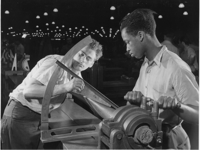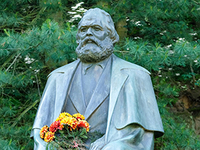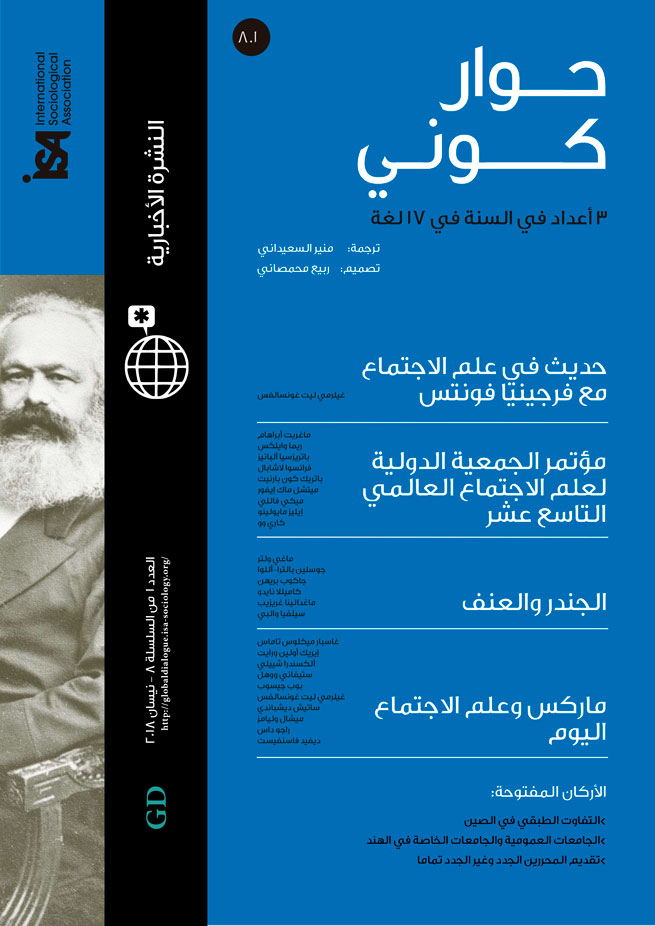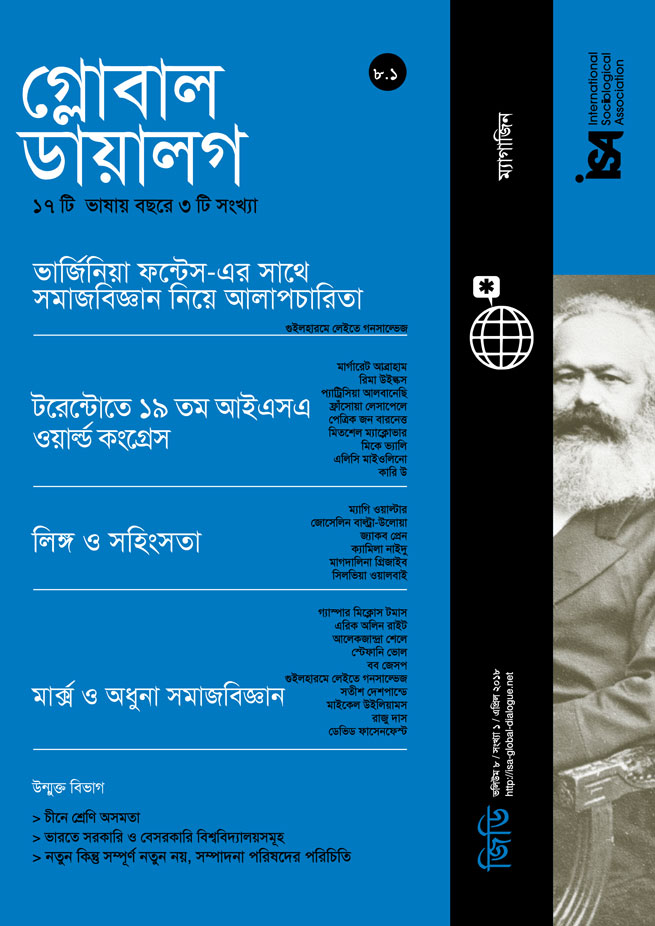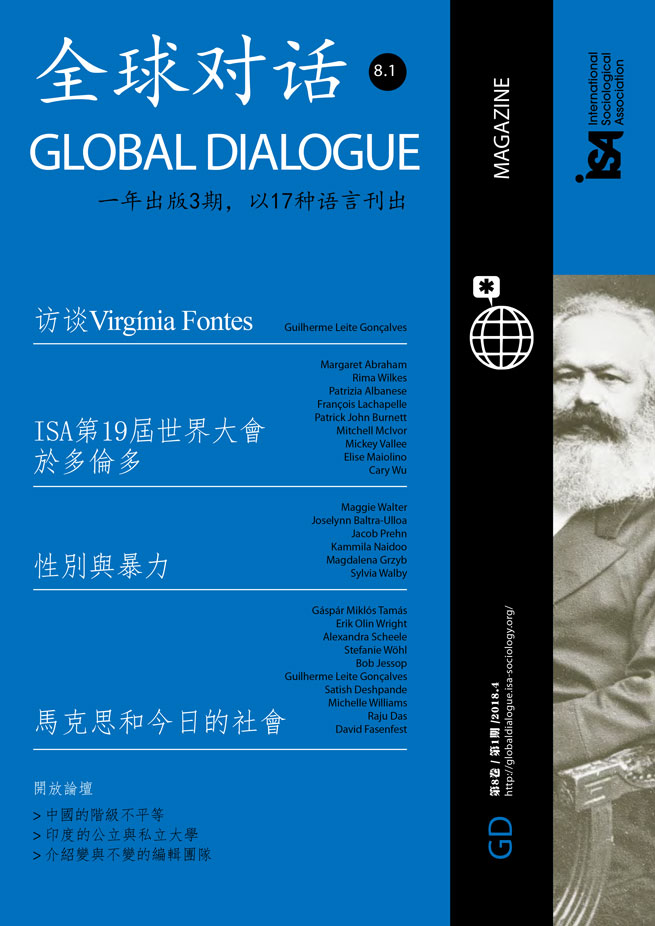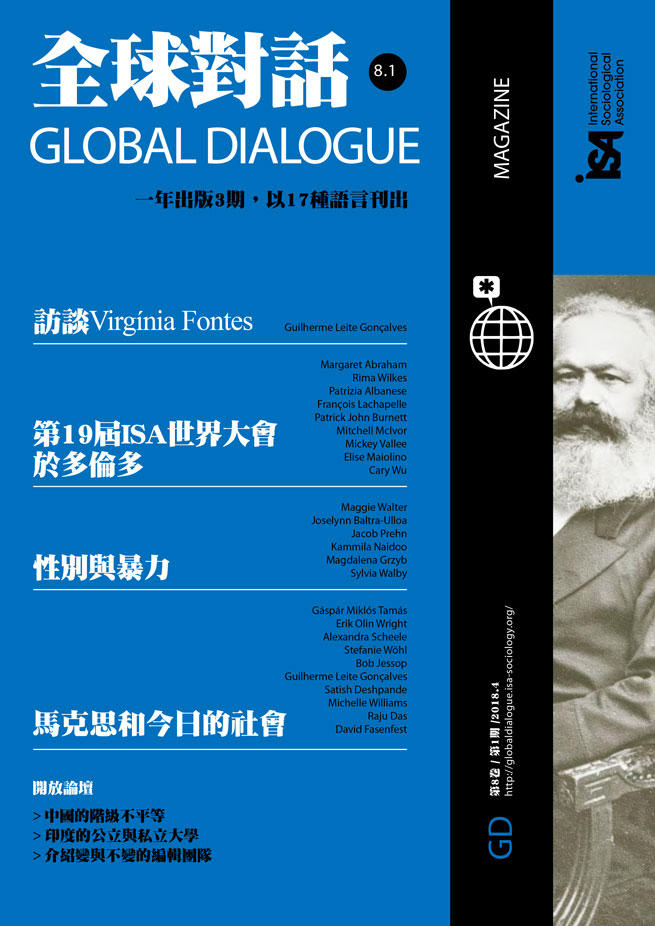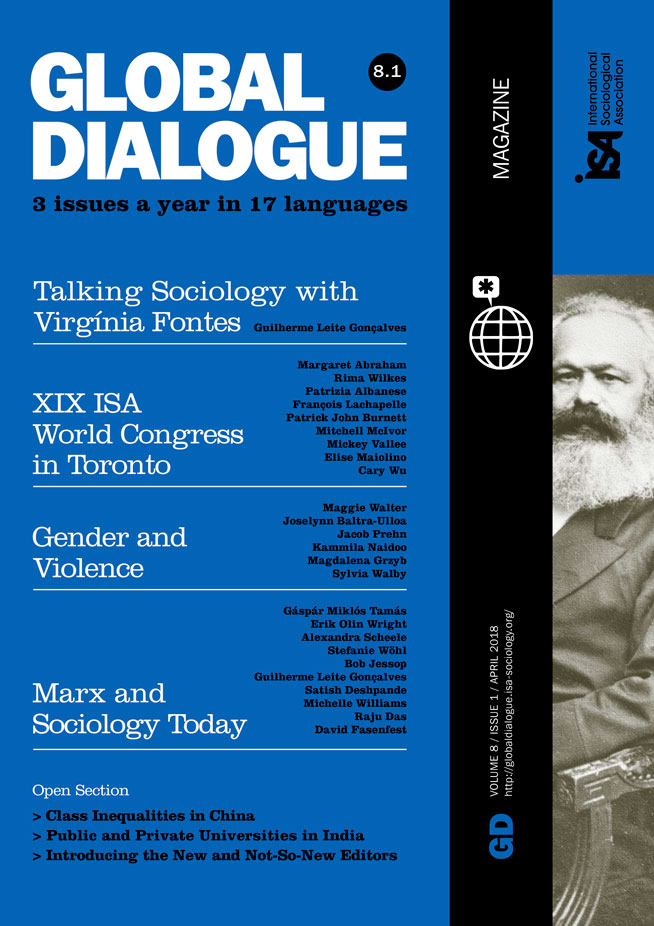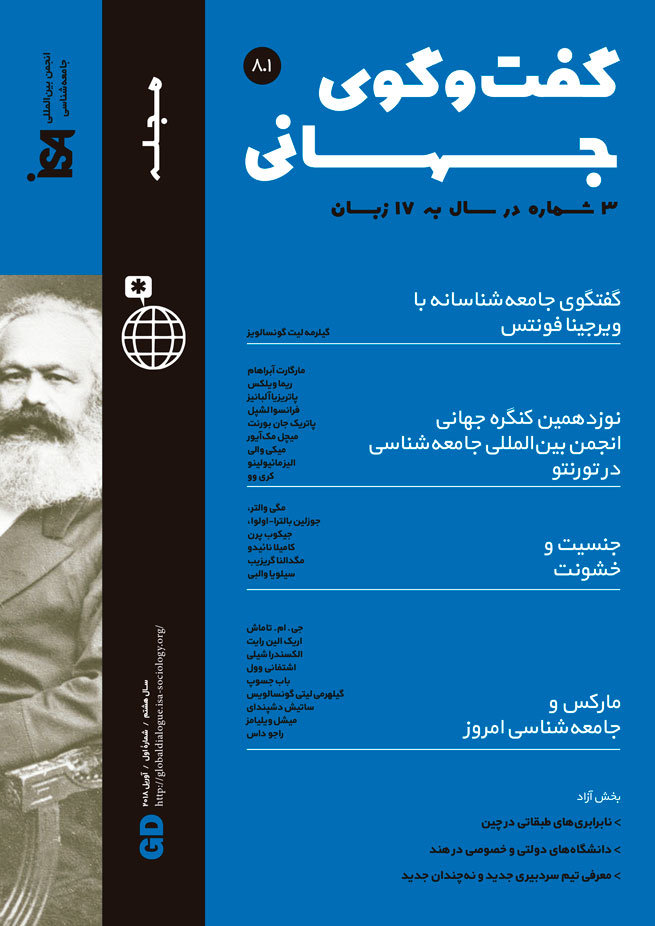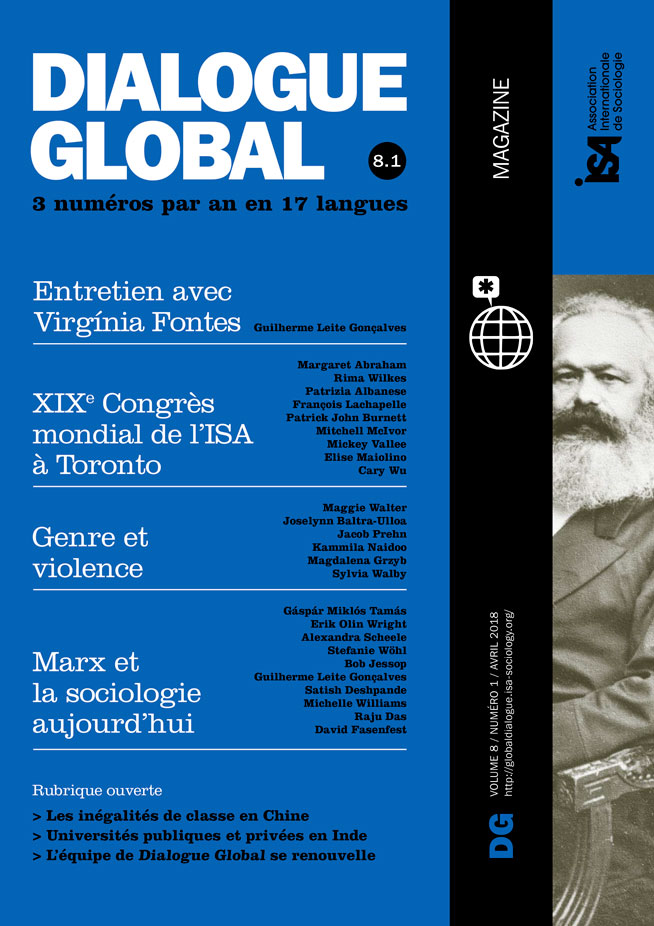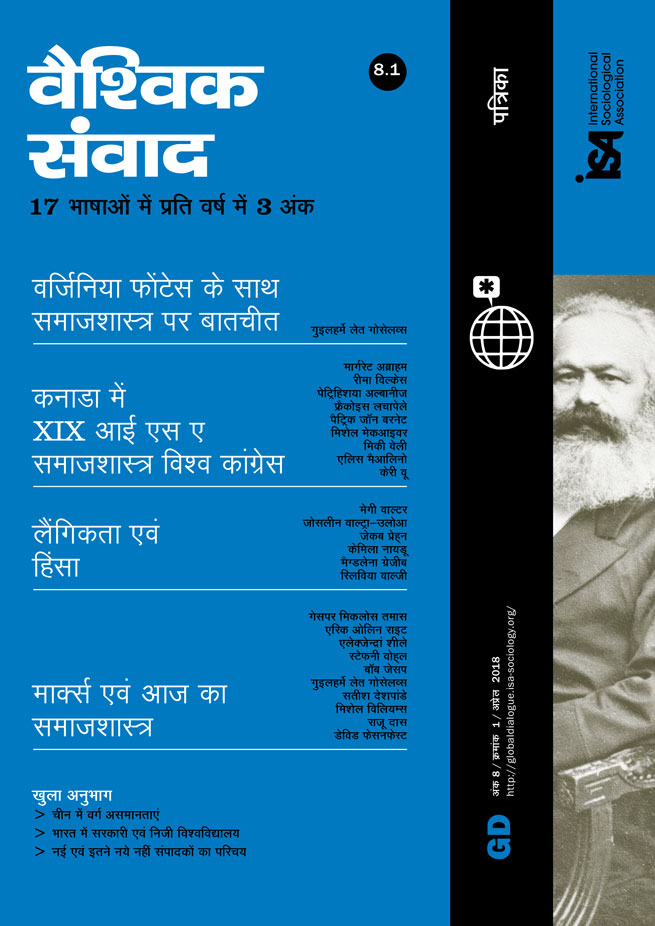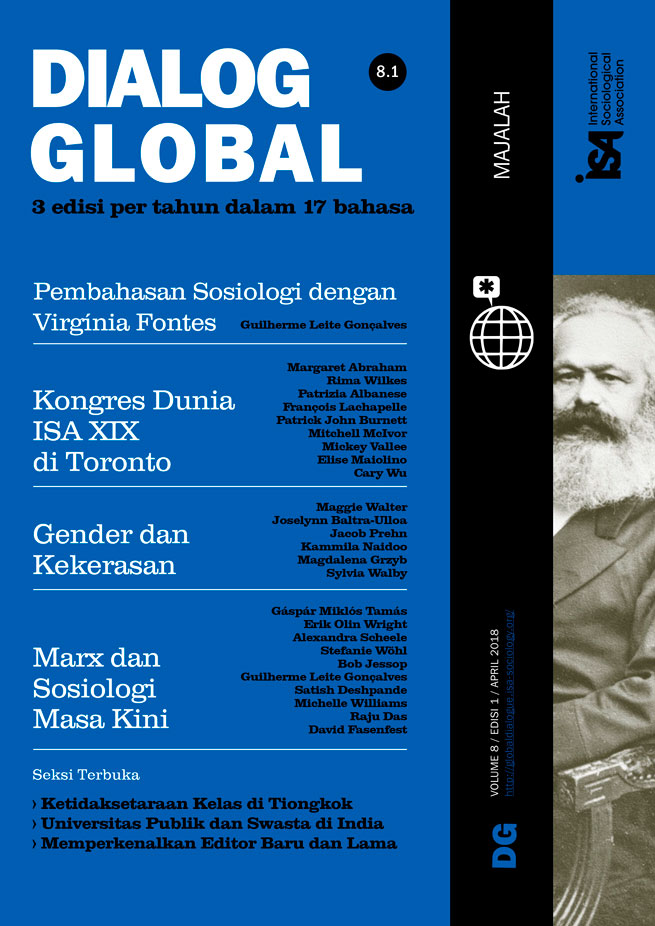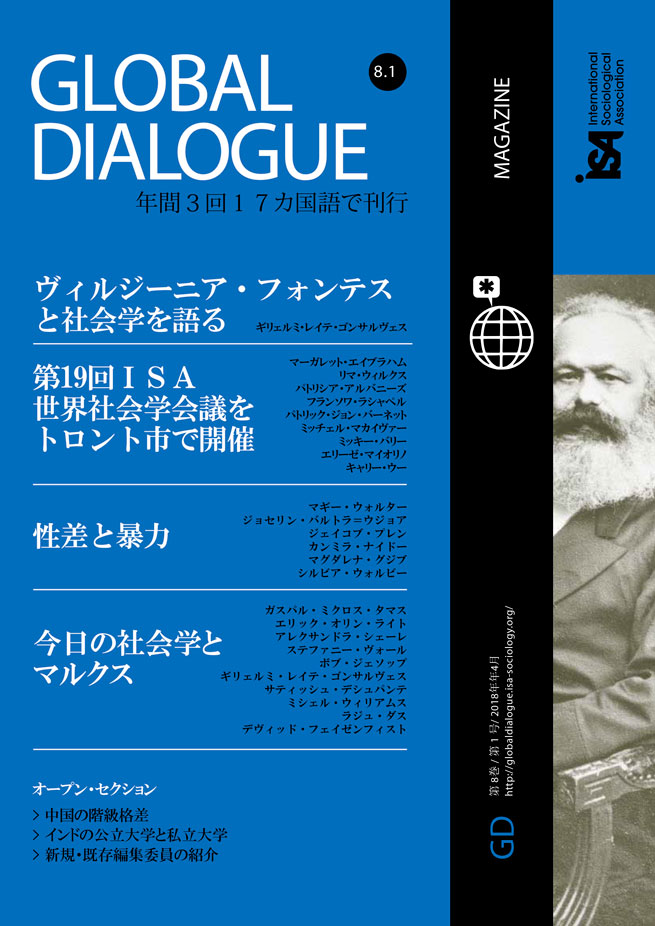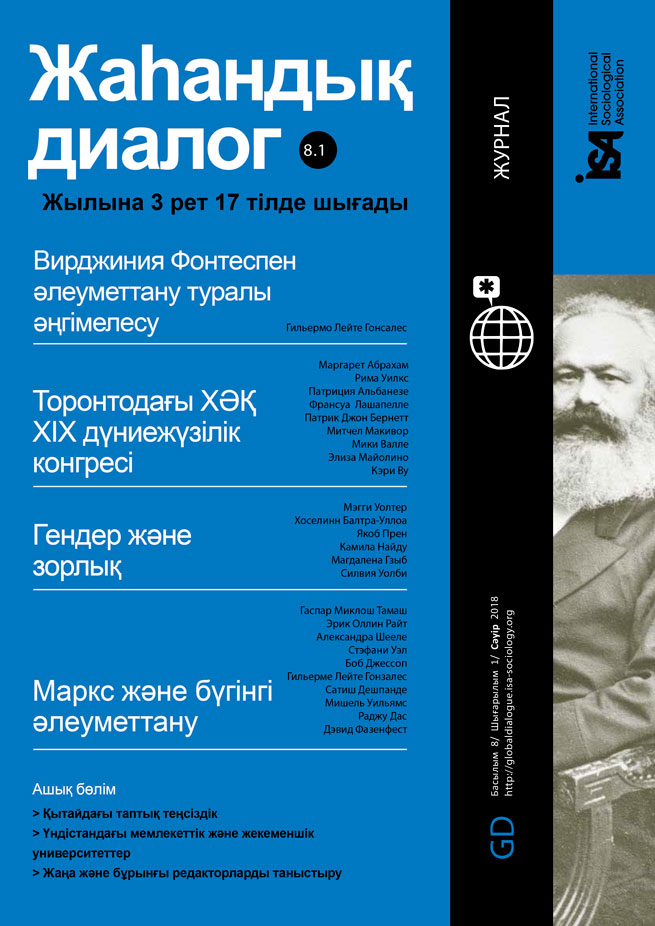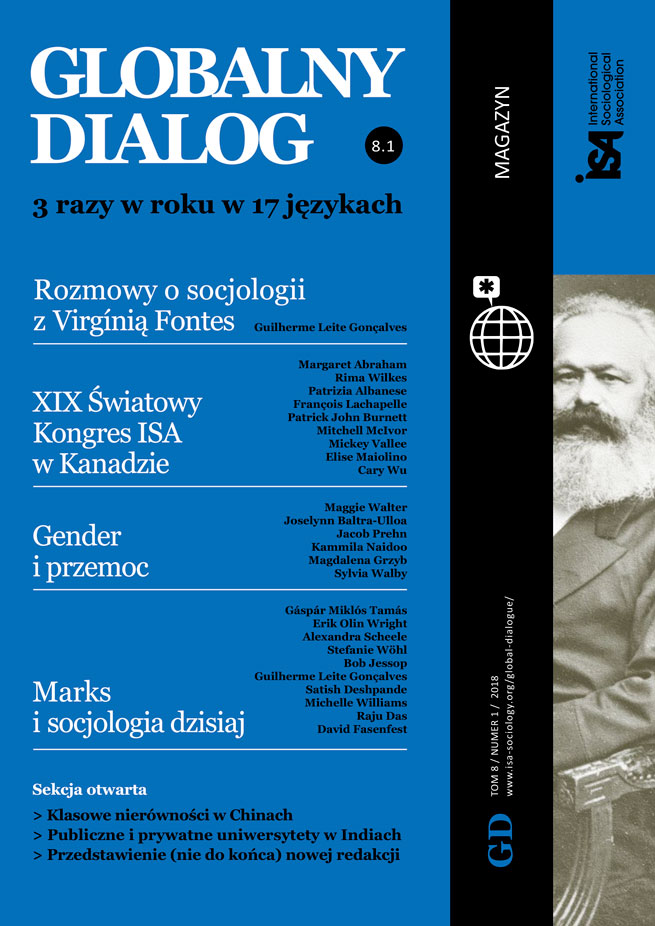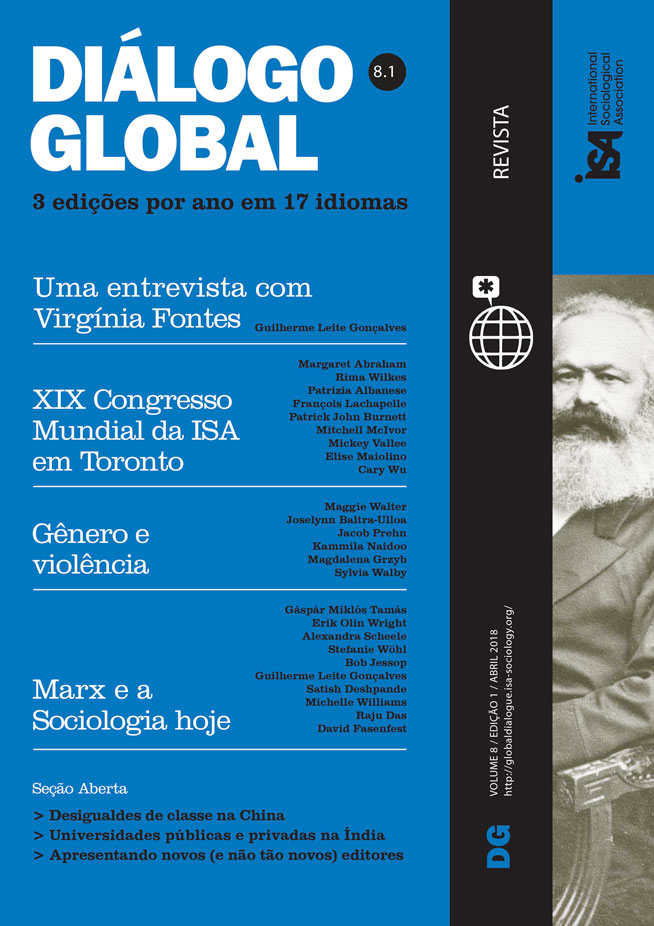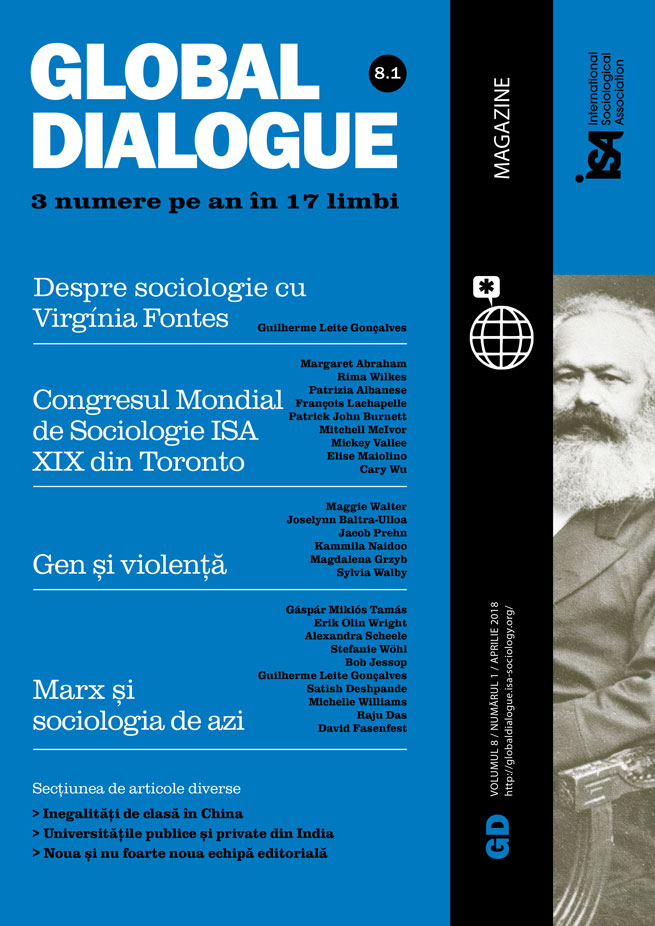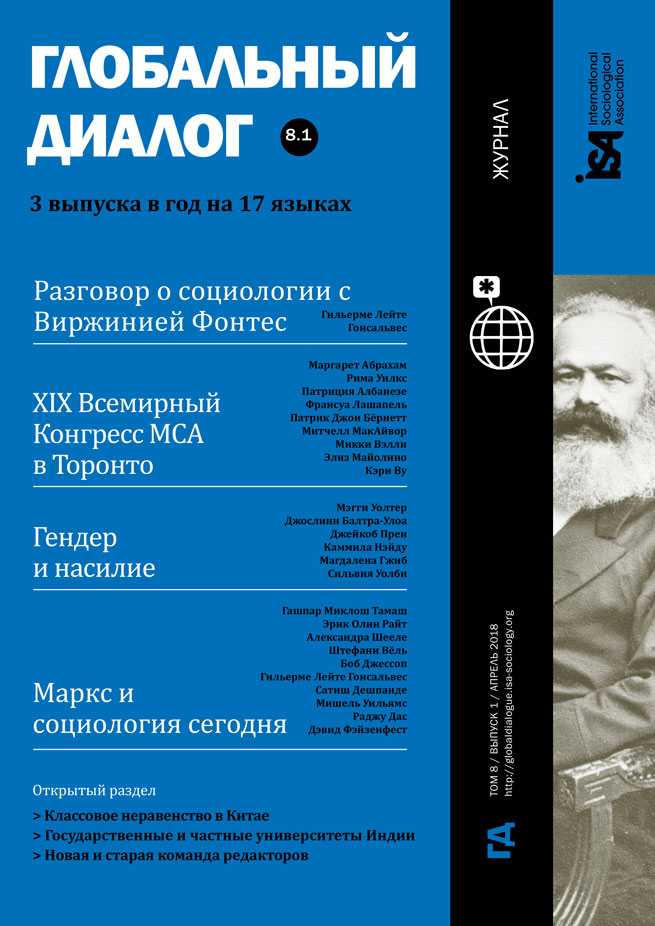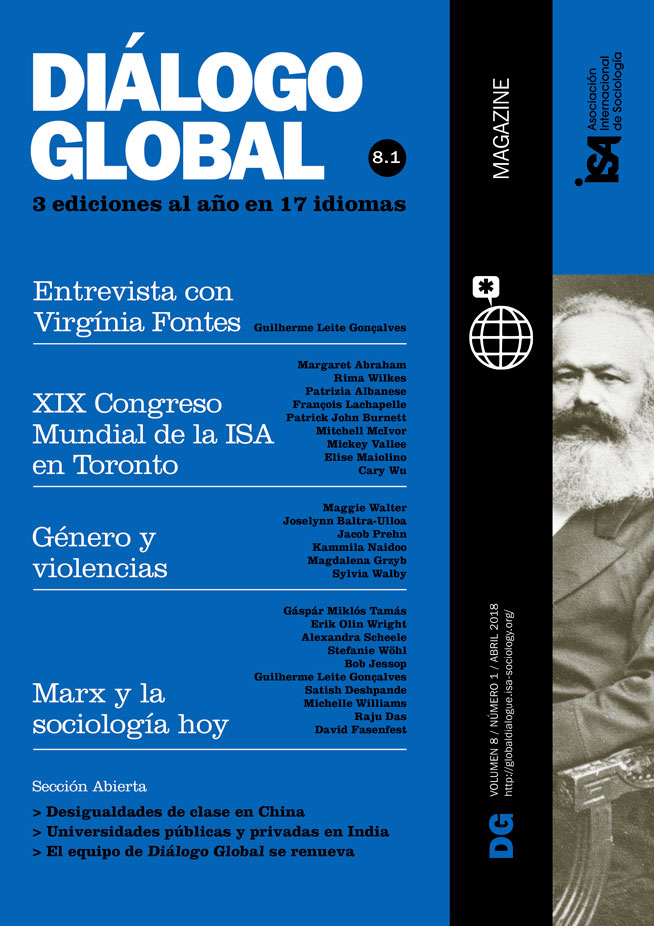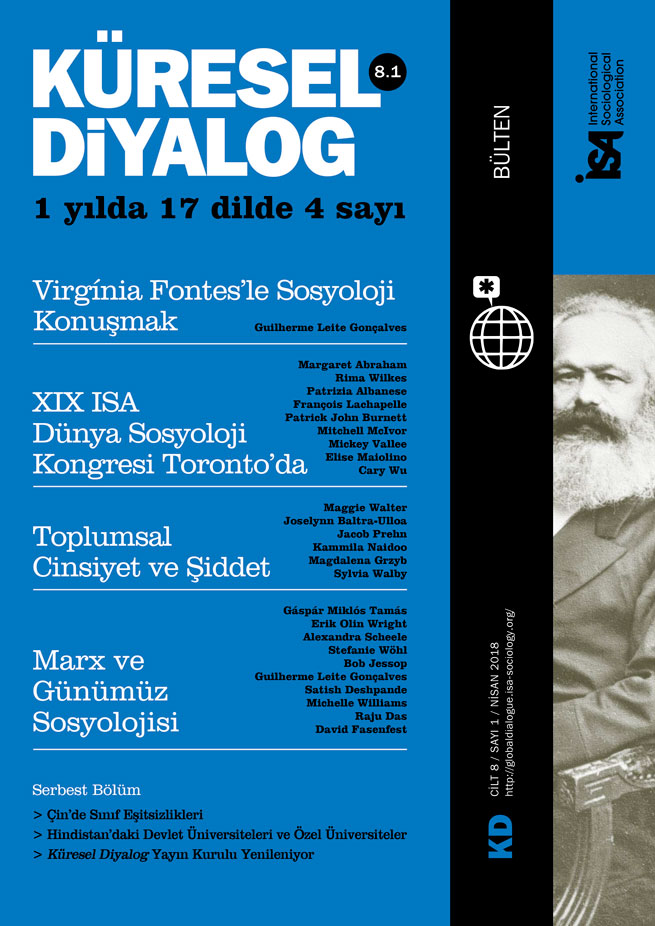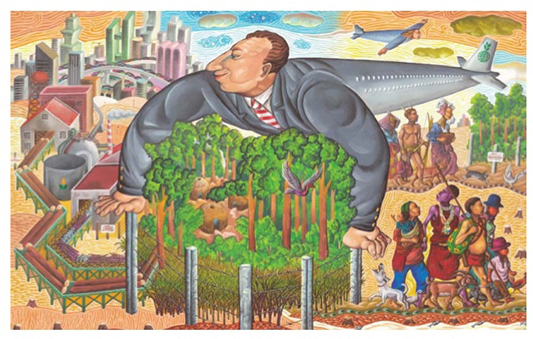Marxism and law
Much of what we know about the Marxist notion of law is rooted in Evgeny B. Pashukanis’ critique of legal form. Its starting point is Marx’s argument that in capitalist society sociability acquires the form of value, implying that concrete labor is realized through the exchange of commodities. This assumes the autonomous and equal will of each of the commodities’ owners. Such will only exists as a legal form. The legal form in turn creates an abstract equality between different forms of concrete labor, masking the self-reproduction of inequality. Law acquires, thus, a fetish character.
The traditional critique of the legal form analyzes the structure of law only when money is transformed into capital and surplus value is produced. It explains why domination acquires the form of abstract domination, how the appropriation of the immediate producer’s labor is made invisible, and how exchange between equals reproduces inequality. But does capitalism reduce itself to this cycle?
Accumulation and Landnahme
In order to keep on being capital, capital must always be valorized. It requires more labor than is necessary, producing surplus labor and capital. This unmeasured process has to deal with the possible social conditions for the realization of the created value. There is, then, an overaccumulation that undermines profitability. At this stage, capital must seize other social spaces to allow surplus value to flow, opening a new cycle of valorization. These dynamics do not correspond to the principle of exchange of equivalents, but rather to the capacity to seize such spaces according to the pressure of (re)valorization. It is a form of ongoing primitive accumulation.
In Marx’s work, primitive accumulation is understood as the starting point for the capitalist mode of production. It is this process that separates the producer from their means of production, resulting in a violent expropriation of social groups, and the creation of people who are free to sell their labor power. Rosa Luxemburg argues that this is a factor of capitalism’s own development; as only a limited part of surplus value can be appropriated at the site of production, the system must always turn to a non-capitalist Outside to realize it in full. Such a process is marked by explicit violence. David Harvey goes further, analyzing how capital overcomes crises of overaccumulation through accumulation by dispossession. From this argument, Klaus Dörre has developed the theorem of Landnahme: capitalist expansion as the permanent and violent commodification of a yet non-commodified Outside.
In the Landnahme phase, law has a different character to that described by Pashukanis. As Luxemburg states, in the exchange of equivalents, “peace, property and equality, as forms, rule,” which means that “the appropriation of another’s property turns into a right to property; exploitation, into exchange of commodities; and class domination, into equality.” Alternatively, in the expropriation of non-capitalist spaces, Luxemburg affirms that “colonial policy, the international loan system, private interest policy and war rule. This is where violence, fraud, oppression and plunder become evident.” In short: law works as explicit legal violence and an express prescription of inequality.
Landnahme is thus developed through the state in order to provoke a violent transformation of existing property relations. This model is a result of legal reforms that aim to replace collective and common property relations with private ones.
Furthermore, Landnahme implies a spatial restructuring: local populations are expelled and, once removed from their common or public space, become “free” wage laborers and are disciplined into their new role in the productive chain. Thus, in addition to the instruments of expropriation of public and common space, law also facilitates the control of the expropriated.
Landnahme and law
The social-legal reproduction of Landnahme takes place in three phases:
1) Legal othering
Legal othering is a symbolic process, implying the discursive characterization of the non-capitalist Outside as a deviant and inferior Other. The main instrument is human rights.
The universal character of human rights presupposes the existence of values intrinsic to human nature, claiming that all people should be treated equally and that the legal protection of human values is universal. Thus, if it is true that individuals carry humanity within themselves, but their acts are contingent and can oppose human rights themselves, it is the duty of human rights to combat the deviant. This is the premise for the setting of a criterion of justice, which is used to judge social practices.
In global capitalism, this discourse builds a spatial hierarchy: on the one side, civilized spaces with modern rationalization; on the other, pockets of injustice and irrational norms. But this difference reflects, in fact, existing power relations in society. In that sense, the criterion of justice is the universalization of the worldview of the ruling class, who uses it to impose its particular interests. The humanist discourse thus becomes a motor of external interventions and colonization.
2) Legal instruments of privatization
Once the Outside is characterized as an Other, commodification can occur. To push this process, law develops instruments enabling the transfer of public, collective, or common property to private actors. These instruments facilitate deregulation, privatization, and the opening of a given sector to the global market. They appear under different institutional designs: sales of assets, public companies, or areas; public-private partnerships; transfer of property or the administration of a public service to private companies; etc. All these designs work as legal theft, in which the state, under the justification of utility promotion, removes people from their lands and restructures territory for the creation of value.
3) Use of criminal law
n his analysis of the “bloody legislation,” Marx described the use of criminal law as operating parallel to the expropriation of peasants from their lands. As peasants were expelled and became free to sell their labor force to the capitalists, they were not fully absorbed by the industrial economy. These peasants, socialized in other practices, did not correspond to the new patterns of labor and way of life. They were forced to adjust to the discipline of the new situation through the repressive legislations against vagrancy.
This functional pattern of criminal law repeats itself in processes of Landnahme. Legal techniques are frequently utilized to facilitate the privatization of spaces, and the breaking of the collective and communality of social groups and local populations – freeing them to sell their labor power. Once they are “free,” criminal law is used to discipline the workforce. In the present context, this means a disciplining of precarious and flexible work relations. It takes place through methods of criminalization of poverty, forcing people to enter into a precarious system of wage labor.
Conclusion
There are two entangled aspects in the social-legal reproduction of capitalism. In the exchange of equivalents’ cycle law works as the form of abstract equality and freedom, which is linked to the fetishism of commodities. In the expansionist cycle of capitalism it appears as explicit legal violence, as the three above-mentioned phases. Considering that the exchange of equivalents’ cycle tends to the formation of overaccumulation, it always reaches a neuralgic point, which demands the activation of new expropriations over a yet non-commodified Outside. Thus, the social-legal reproduction of capitalism materializes through the continuous alternation between fetishist legal form and explicit legal violence.
Guilherme Leite Gonçalves, Rio de Janeiro State University (UERJ), Brazil <guilherme.leite@uerj.br>
